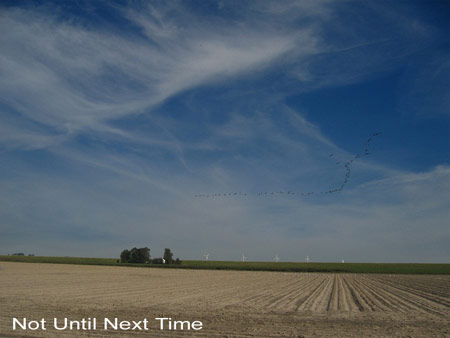


![]()
ps
During birthday parties at my grandmothers house, when I was a child, I used to hide behind the couch in the hope the adults would forget about me. Usually they would and when they thought the children were asleep, the stories of the flood of 1953 were told over and over again by aunties and uncles. Most of the stories were and are a mere account of all the friends and families who drowned and a detailed report of how it happened. The water came in the night so many people were surprised and the only thing they could do was to flee to the roofs of their houses.
At the time I was deeply impressed by stories of religious families sitting for days on the roofs of their houses, refusing to be rescued. So here they were, on their roofs, waiting for their house to collaps, or not, and to be swallowed by the waters, or not, which were "swept up by the terrible wrath of God". For some vicars the flood was considered a punishment of God for committed sins.
An uncle and his grandmother found themselves a tight place on a beam of the attic and watched the water rise under their feet. In their street the houses were collapsing one by one and they had to listen to the screams of drowning people all night through. Both of them were lucky to be rescued after 24 hours. When they were brought to the vicar's house, his wife refused them a bed to lay down, because she just made them.
After the flood a man told his neighbour they found his drowned baby daughter and his neighbour remarked "Ah, so now also she is burning in hell ". With the time passing, the islanders only shed their tears in silence, on the soil they worked on.
Ofcourse, many other stories can be told, of heroism and sacrifice, but the brief examples mentioned above always sticked to my mind.
The miraculous survival of the rabbit of my great-grandmother became one of the funny stories although it ends bad enough (for the rabbit).
Nevertheless
the fact that my family suffered no casualties my mother used to teach
us survival techniques asking us in a very matter of fact way: "What
would you do when …." So as a child I had a list in my head
which I discussed with my brother:
1.
keep a rubber boat on the attic
2. open the window on the attic (when the water rises, oxygen has to escape,
otherwise the house implodes)
3. choose a big house in the village to go to
4. take care of trees in the water
5. never swim against the current
6. (my secret) learn to become a mermaid
Sometimes we filled our little rubber boats, which were stored on the attic, with air and played survival games. This all may sound hysterical, but before the closing of the arms of the sea, many people we knew went to sleep on their attics if a storm was predicted. The last important barrier was ready in 1986 and only after that date, the Dutch state started to reinforce the dykes.
One evening in 1976 a storm was raging and I went to the dyke embracing the village. Apart from the storm also spring tide was on hand, which is a fearful combination, like in that night. Many villagers were already gathered at the harbour and together we saw the water rise. We, the young ones, were making stupid jokes. We had the confidence of youth that nothing would happen to us. The elder people just watched.
The nightwatch was called into force and took patrol along the dykes.That night the water came to 50 centimeters under the summit of the dyke. Although my apparent unconcern, the visual image of the rising water became a fixed nightmare but when I dream it, it is so overwhelming that I do not feel any fear.
Somehow, when F. and I moved to Tuscany in a house on the top of a hill it felt oddly safe. How can one describe the difference in feeling of looking out of the window and see the rolling hills stretching out before your eyes or walking behind the dyke in the village knowing the water is 2.70 metres above your head.
Now I'm back in the lowlands and I still have No Boat.

